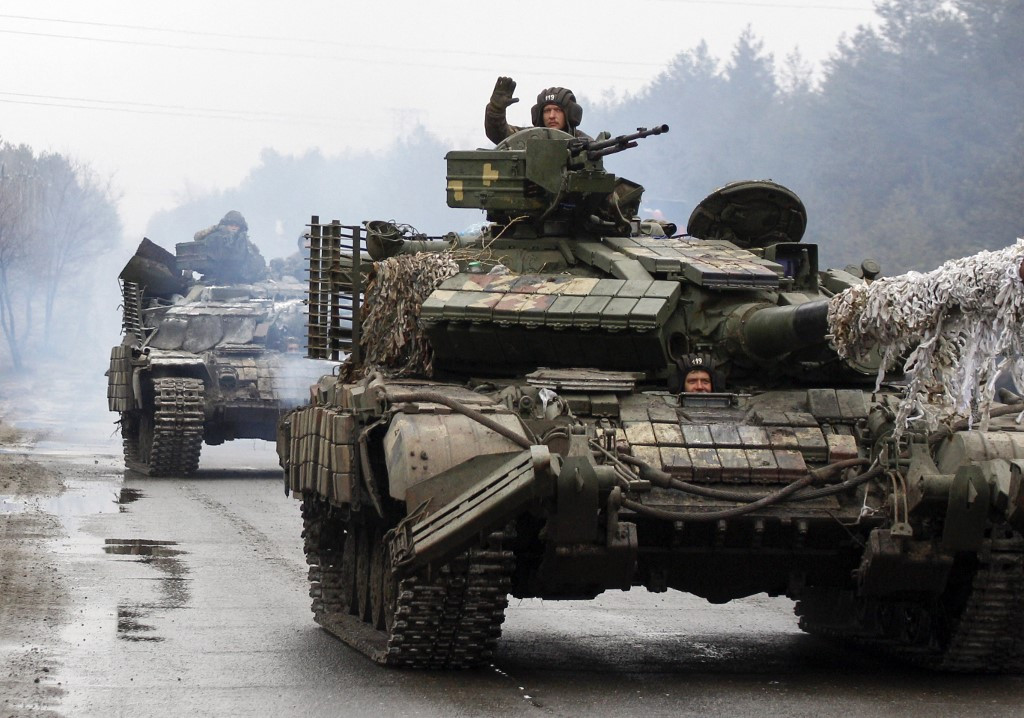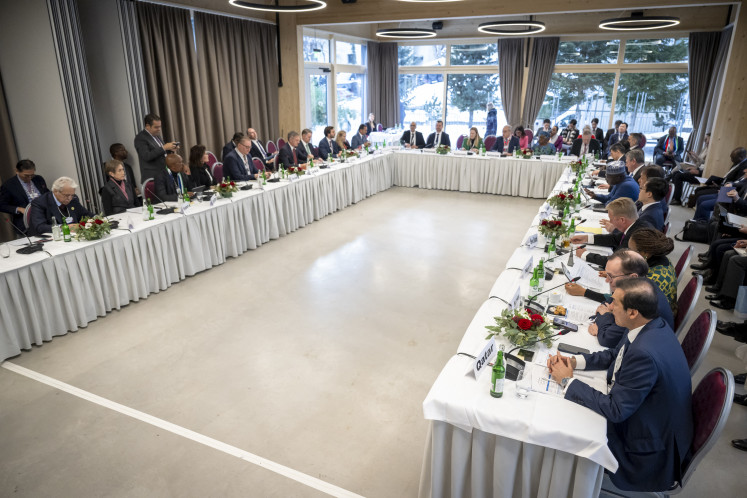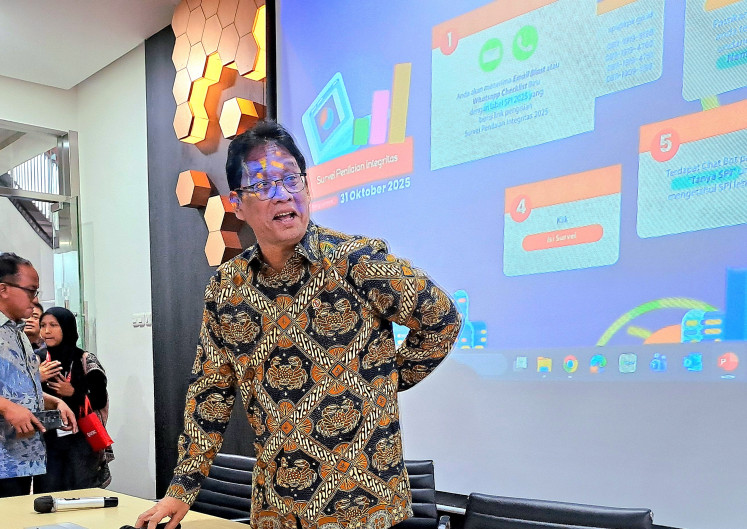Popular Reads
Top Results
Can't find what you're looking for?
View all search resultsPopular Reads
Top Results
Can't find what you're looking for?
View all search resultsFinance chief warns of 'cold war', climate impact on economy
"We have a new [Berlin] wall now," Finance Minister Sri Mulyani said.
Change text size
Gift Premium Articles
to Anyone
F
inance Minister Sri Mulyani has said the geopolitical environment has undergone a "fundamental shift", creating heightened risks for the global economy.
At a forum held by the Indonesian Bankers Association (IBI), the minister claimed expert analysis had shown that a Cold War-like situation was returning, where the Western bloc would stand against Russia and China.
"We had these similar episodes in the 70s [...] inflation and geopolitics, if we look back then," Mulyani told bank executives.
She said globalization, where ever larger amounts of capital flowed between countries with little hindrance, was able to emerge after the fall of the Berlin Wall and the dissolution of the Soviet Union, which removed the two-bloc system.
In the current global situation, however, she said the shifting nature of geopolitics would prevent global economic growth from reaching its full potential.
The finance chief said policymakers and executives alike needed to "learn from historical precedent" so that all parties would not be "so easily be in a state of confusion and shock", in facing economic, financial and geopolitical challenges.
"We have a new wall now, and therefore, the supply chain is shifting," Sri said. "It will shift, thus impacting global economic performance."
For the year of 2023, she said, banks should be "cautious before being optimistic," as the International Monetary Fund (IMF) had downgraded the global economic growth forecast to 2.7 percent, a third of the world economy was expected to fall into recession and more than 63 countries were facing possible debt crises.
Read also: Amid continuing surplus, RI trade performance cools
She also said global decisionmakers had made climate change a "mainstream issue", which would compel bankers to consider their current policies.
The shift had occurred, she said, because the world had become more aware of the systematic risks that climate change posed to financial markets, aside from targets to achieve sustainable development.
Within the Group of 20, the minister said the Bank of International Settlement (BIS) and the Organization for Economic Cooperation and Development (OECD) had talked about going beyond sustainable financing to making the consideration of climate risk factors mainstream in the financial sector’s decision-making.











